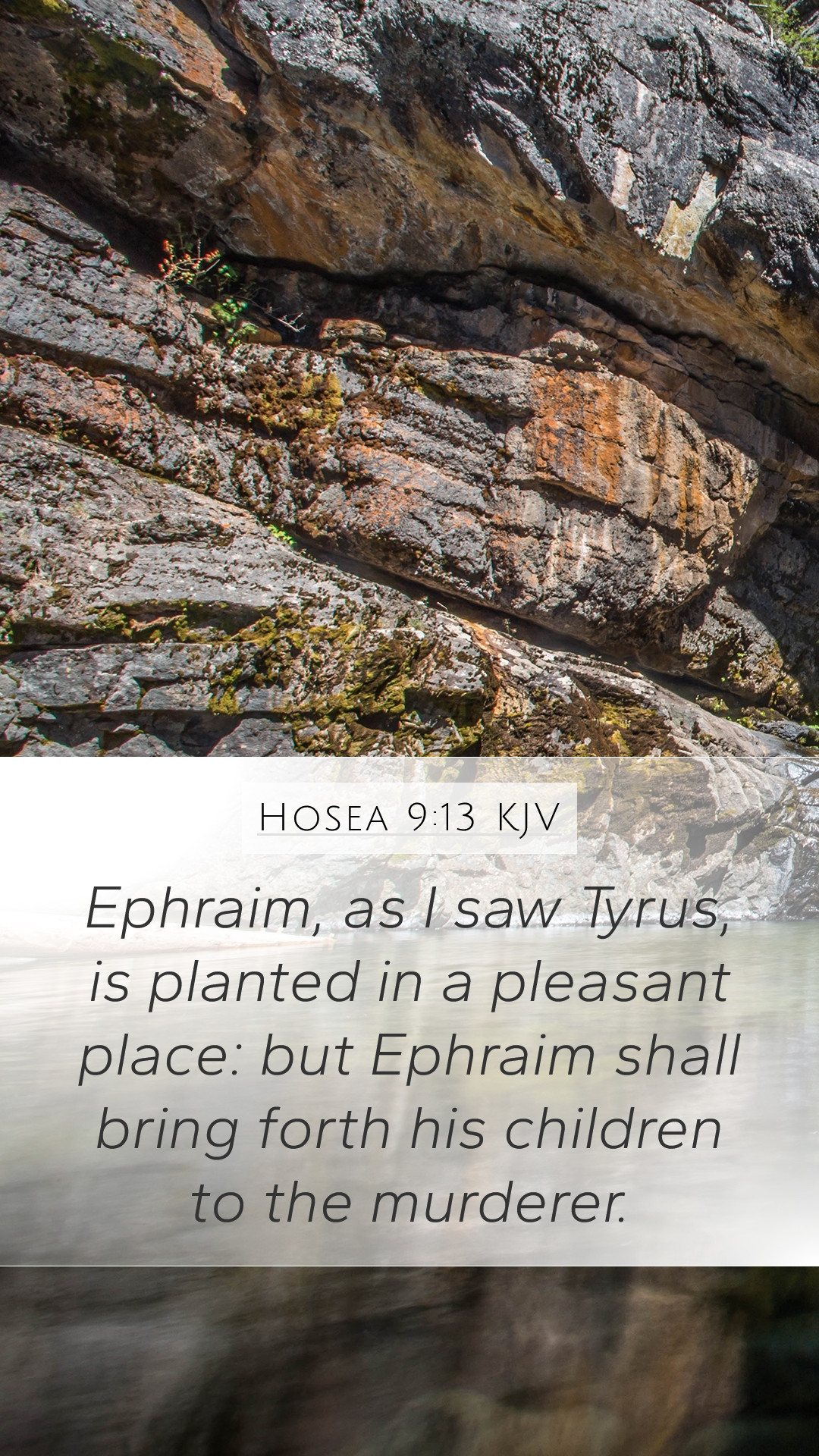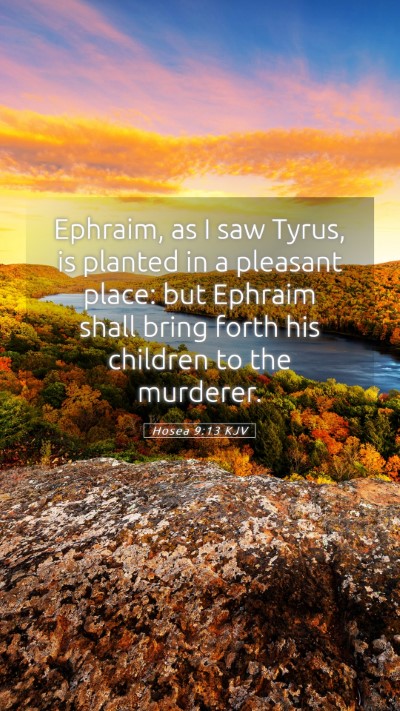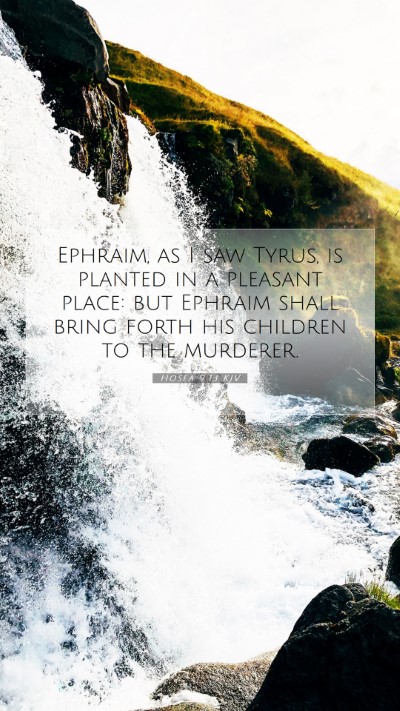Old Testament
Genesis Exodus Leviticus Numbers Deuteronomy Joshua Judges Ruth 1 Samuel 2 Samuel 1 Kings 2 Kings 1 Chronicles 2 Chronicles Ezra Nehemiah Esther Job Psalms Proverbs Ecclesiastes Song of Solomon Isaiah Jeremiah Lamentations Ezekiel Daniel Hosea Joel Amos Obadiah Jonah Micah Nahum Habakkuk Zephaniah Haggai Zechariah MalachiHosea 9:13 Meaning
What is the meaning of Hosea 9:13?
Ephraim, as I saw Tyrus, is planted in a pleasant place: but Ephraim shall bring forth his children to the murderer.
Hosea 9:13 Bible Verse Meaning
Bible Verse Commentary: Hosea 9:13
Verse Reference: Hosea 9:13 - "Ephraim, as I saw Tyrus, is planted in a pleasant place: but Ephraim shall bring forth his children to the murderer."
The verse delves deep into the themes of judgment and the consequences of spiritual unfaithfulness. The prophet Hosea, known for his vivid imagery and emotional appeals, offers a poignant critique of Ephraim, representing the northern kingdom of Israel, likening it to Tyre, a city known for its prosperity and pride.
Summary and Interpretation
This verse signifies the apparent blessings enjoyed by Ephraim, which are contrasted sharply with the impending doom due to their sins. There is a dual emphasis on prosperity and loss, signifying how earthly blessings can lead to spiritual complacency and ultimately disastrous consequences.
- Comparison with Tyre: Tyre was a city of commerce and strength, indicating that Ephraim also enjoyed blessings and stability. However, this comparison serves as a prelude to judgment rather than a commendation.
- Spiritual Complacency: The reference to being "planted in a pleasant place" reflects prosperity, leading the people astray in their devotion to God.
- Consequences: The latter part of the verse warns of the fate awaiting Ephraim, where their children are to be delivered to destruction, signifying the totality of their judgment.
Insights from Public Domain Commentaries
Matthew Henry's Commentary
Matthew Henry emphasizes that although Ephraim appeared safe and prosperous, their spiritual decline would lead to ruin. The analogy to Tyre suggests an illusion of safety that leads to catastrophic judgment. He cautions readers to remain vigilant against pride and complacency, sharing that God ultimately disapproves of the superficiality of their worship.
Albert Barnes' Notes on the Bible
Barnes interprets this verse with a focus on the idea that God's judgment is inevitable. The "murderer" hints at the violent consequences of sin, and he parallels this with the historical context of both Ephraim and Tyre to illustrate the stark reality of divine retribution for forsaking God.
Adam Clarke's Commentary
Clarke reflects on the metaphor of planting, explaining how it denotes a false sense of security. Clarke elucidates that God sees beneath the outward appearance, foreseeing the destruction that follows such unfaithfulness. His interpretation suggests a call to repentance and a reminder of God's unwavering justice.
Cross References
- Amos 1:9-10: Discussing the judgment of Tyre parallels the fate of Ephraim.
- Isaiah 28:1: Offers insight into the pride of the northern kingdom.
- Jeremiah 7:31: Similar themes of children being offered to false gods reflecting judgment.
Application and Reflection
This verse serves to remind us of the tangible consequences of straying from God's path. In applying its lessons, individuals and communities should engage in self-examination regarding their spiritual commitments, especially in times of ease and prosperity. It also emphasizes the importance of nurturing one's faith and values to avoid the perils that come from neglecting spiritual health.
Final Thoughts: Hosea 9:13 is not merely a historical account but a timeless warning about the dangers of complacency in faith. Readers are encouraged to delve deeper into the meanings of Bible verses through collective study, maintaining a disciplined approach to scripture for richer understanding.
For those engaging in Bible study groups or online Bible studies, utilize this verse as a launching pad for discussions around the implications of spiritual negligence and the call for authentic faith in daily life.


